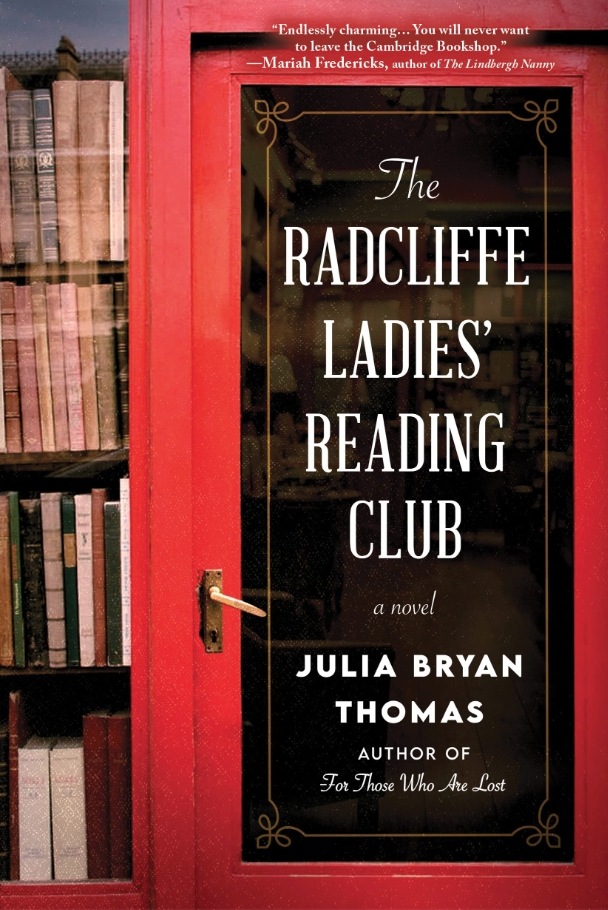
It’s no secret that books and stories in general are many people’s go-to method of escapism when reality lets them down, all while allowing them to be one’s foothold in a tumultuous world. The colorful cast of The Radcliffe Ladies’ Reading Club is no different, and in this tale of independence and women supporting women, readers experience the many ways in which books can be a true saving grace. Many thanks to Julia Bryan Thomas (who also authored For Those Who Are Lost) Sourcebooks Landmark for giving me an ARC copy.
When Alice Campbell travels across the country to Cambridge, Massachusetts, she’s already seen enough heartache to know that books—not diamonds—are a girl’s true best friend. This is especially true of young women in 1954, who fight tooth and nail on a daily basis just to be taken seriously by their male colleagues. Becoming an entrepreneur in this environment isn’t easy, but Alice perseveres and fosters a healthy support group for likeminded, classics-loving women in the process. Their bond, as well as the healing power of books, is put to the test over and over again in The Radcliffe Ladies’ Reading Club through a series of twists that will inspire and devastate readers by turns.
At its core, this book is a testament to the popularity of dramatic, heartfelt portrayals of a period of history that none of us have lived, but one we feel we have at least scratched enough of the surface of in history class to understand the unique challenges it posed to the population as a whole. Bringing it all down to a personal point of view makes it more real, and in some ways both more and less difficult for modern audiences to swallow.
For those who have not read Thomas’s previously published work, one thing they will immediately notice in The Radcliffe Ladies’ Reading Club is that she has a decent command of compelling storytelling strategies. The elegance of her prose was a selling point for me; it provided the ideal backdrop for the nuances of the main characters throughout the book, even the ones we aren’t necessarily supposed to like. From the charming members of the Cambridge Bookshop’s signature circle of female friendship to the naysayers they engage in mostly polite battles with on a daily basis, the lay of the land is so well established that the characters fit into it just as well as the bricks used to build the actual town of Cambridge. I did find the pacing of the plot to be a bit sporadic, but the events of the book were vivid and raw in their description, which I think helped bridge that gap in rising and falling action.
There is one important trigger warning I feel potential readers ought to be made aware of going in. This book does include a detailed account of sexual assault. This event is pivotal and referenced at different points throughout the novel, so if this topic is a particular stressor for anyone, then this book is probably not for you.
If, however, you are a fan of stories like Atonement and The Last Carolina Girl, then I recommend you purchase a copy when the book releases this June 6.
